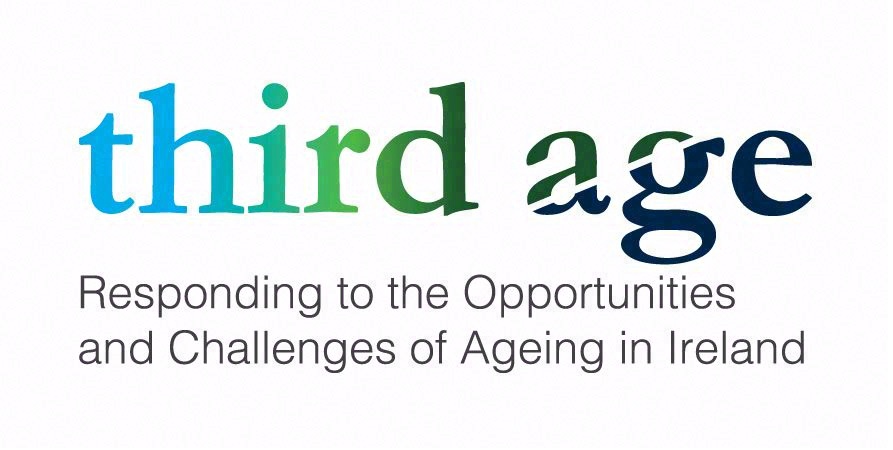Listening Matters: Helping Older People Navigate Loss
Conversations About Grief
Third Age is a national organisation that empowers older people to live full, active, and valued lives in their communities. Through programmes like SeniorLine, Third Age offers support, connection, and a listening ear to older people navigating life’s challenges—including grief. This article explores how we can better support those who are bereaved, especially older people, by understanding what helps and what doesn’t.
Death is both everyday and universal, and most of us, as we go through life, have some experience of loss. It is surprising, therefore, that some people who have suffered bereavement speak about the poor response they can encounter from friends, neighbours, and people in general. Why is this? Is there a good way to support those we care about after a death?
Not Knowing What to Say
Some people don’t know how to approach a bereaved person after a death. It can feel as if the survivor has somehow moved to an unreachable, distant place.
“I have seen people cross the road to avoid me. I know it’s because they don’t know what to say. But it is hurtful, as if I have changed,” says Marie, who was widowed in 2022.
There are many reasons why grief can cause uncomfortable feelings in others and lead them to avoid awkward encounters. It may be that such meetings trigger their own unresolved grief. People may believe they couldn’t handle another’s tears or distress, or they may feel they have to fix or solve the situation somehow—make it better.
Keeping People Company
At a fundamental level, there is often nothing to do about death. It has happened. It just is. In these situations, we can help by offering emotional support: listening, being present, and giving grief and loss the space they deserve.
The Third Age programme, SeniorLine, Ireland’s telephone service for older people, hears from callers who may still be grieving months or years after the death of someone close. The caller often needs to talk about the circumstances surrounding the death, the person who died, and life since.
SeniorLine volunteers know the value of listening and giving the caller time to talk.
“At my age, I have experienced death and I know how people need to talk. I offer empathy rather than sympathy as I try to put myself in their shoes. I ask about the person that died and encourage the caller to talk about him or her if that is what they want. People really appreciate that, as it does not seem always acceptable to continue talking about the person as time goes on. But there is no one right way to grieve, and everyone is different,” says Patsy Buckley, Dublin 16, a SeniorLine volunteer.
As a confidential support service, SeniorLine does not assume to know how a bereaved caller feels. Callers may be helpless, fearful, angry, guilty, sad, lonely, and much more. Our response to loss depends on our relationship with the person who has died, the manner of the death, our support system, personal capacity, and any previous losses.
Less Is More
Sometimes, the simplest words are best.
“I’m very sorry to hear your mother has died,” accompanied by a handshake or hug, lets the person know you are able to share their grief in that moment and stand with them quietly.
“Sorry for your trouble” is a traditional Irish expression to show sympathy and acknowledge someone’s loss. It can express a reaching out without needing a lengthy emotional exchange, allowing sympathy to be offered in a quiet but authentic way.
It is important to avoid clichés. Do not try to minimise their loss, offer false reassurance, or assume you know how they feel. Death is both completely familiar and completely mysterious. Responding to the mystery of death may affect us all in a profound way, and operating from that place may help us offer comfort and consolation in a sincere and effective way.
About Third Age and SeniorLine
Third Age is a network of programmes and projects for older people that supports their autonomy and celebrates their contribution in local communities.
SeniorLine is open daily from 10am to 10pm.
Freefone: 1800 80 45 91
www.thirdageireland.ie
This article was written by Anne Dempsey, Communications Manager of Third Age. Third Age is a national voluntary organisation that empowers older people to stay active, connected, and engaged in their communities. Through innovative programmes and partnerships, it promotes lifelong learning, volunteering, and positive ageing across Ireland.

Memorial Gift Shop
View AllMounted Prints
Mounted original design prints, inspired by the early Irish Celtic illuminated manuscript, The Book of Kells.
Mini Condolence Books - Printed and Bound
Creating a soft paperback book of online messages of condolence can be a meaningful way to preserve and honour the memories of a loved one.
RecaptureOne - QR Coded Memory Plaques
Place our QR Coded memory plaque at your loved one's special place. Scan the unique code with your phone camera to view all of their precious memories.


_bf1a8a6633092c5918e0cee54ae352c090d72a866c2b6b80.jpg)